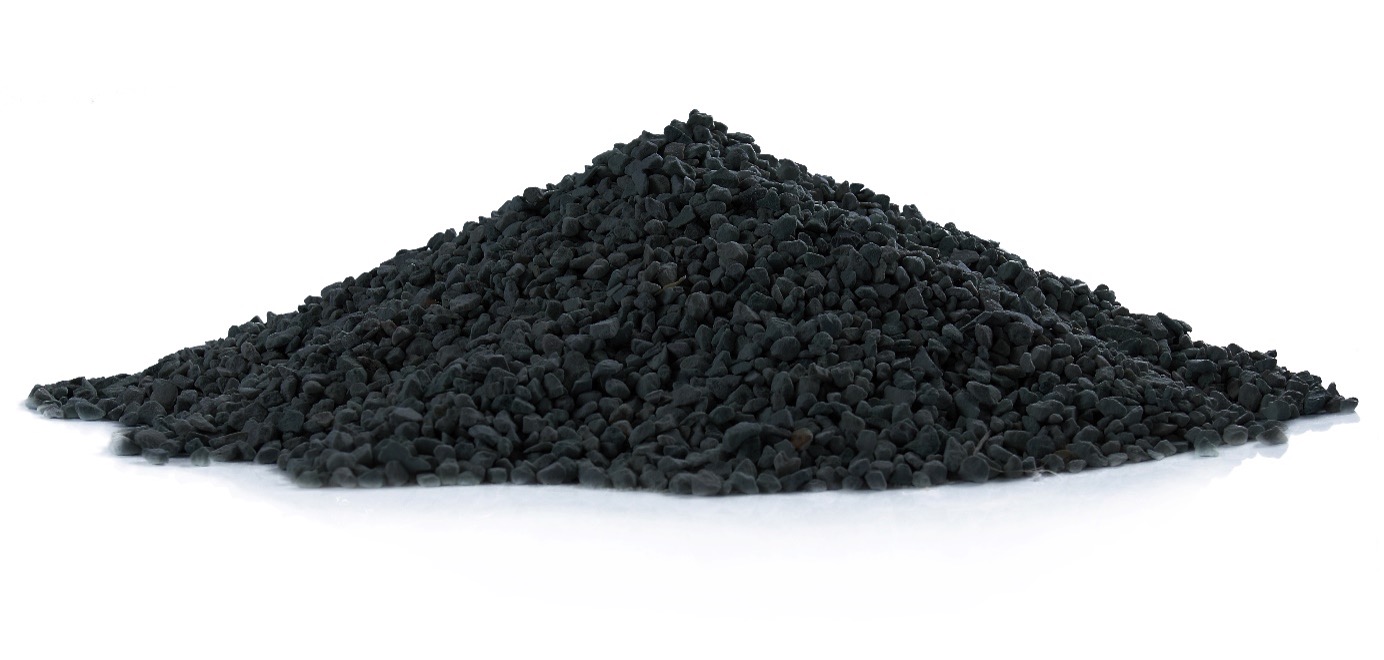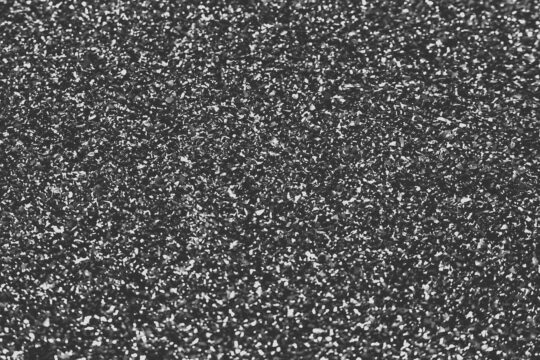Of the various commonly-available forms of activated carbon, granular activated carbons is perhaps the most widely used and versatile.
What is Granular Activated Carbon?
Granular activated carbon, often abbreviated to GAC, is high purity form of carbon characterised by its vast surface area and is used in many purification applications in both the liquid and gas phase. Particle sizes of the granules typically range from around 0.2mm up to 5mm, the choice of ‘mesh size’ depending on the desired end-use for the material. Particles smaller than 0.2mm are generally classified as powder activated carbon (or PAC). The other main physical form of activated carbon is the extruded pellet, which offers a uniform cylinder of carbon, normally 3 or 4mm in diameter.
Granular activated carbon is typically manufactured from bituminous coal, coconut shells or certain types of wood. Each raw material results in a granular activated carbon with slightly different physical properties, in terms of purification performance, so the choice is again driven by the end-user the customer has in mind.

How does Granular Activated Carbon Work?
The surface of granular activated carbon is made up of microscopic holes and channels, known as pores, only visible under a suitably powerful microscope. It is these pores that result in its huge surface area – the statistic often quoted is that a teaspoon of granular activated carbon has the same surface area as a football pitch!
When a contaminated fluid passes through a filtration device containing granular activated carbon, the impurities are trapped within these pores in a process called adsorption, allowing the purified fluid to pass through. Typical applications for granular activated carbon include the removal of taste, odour and colour from drinking water, as well as traces of other dissolved contaminants such as pesticides and herbicides.
One of the key advantages with using granular activated carbon for fluid purification, rather than powder activated carbon, is that granular activated carbon can be recycled for reuse via a process called thermal reactivation. Carbon that is spent, ie the pores are filled with contaminants so that the treatment objective is no longer being achieved, can be passed through a high temperature kiln. The contaminant molecules are forced out of the pores and destroyed, leaving a reactivated granular activated carbon ready to be used again and again in the customer’s process.
Puragen operates two separate state-of-the-art reactivation kilns at its site in Immingham, NE Lincs, one dedicated to treating spent carbons from drinking water and food-grade end-users, the other for industrial applications such as wastewater treatment and biogas purification.
The recycling of granular activated carbon in this way not only saves money, but also offers massive environmental benefits, with a CO2 footprint saving in excess of 90% compared with the use of fresh ‘virgin’ material.
Where to Buy Granular Activated Carbon?
Puragen is a leading UK-based supplier of high quality FiltraCarb® granular activated carbons. We offer a broad range of grades, of different particle sizes and raw materials, and our team of experienced technical experts will assist customers choose the optimum grade for their particular process. With hundreds of grades available, and so many different purification applications, this technical support is essential to ensure customers select the most cost-effective and appropriate solution for their purification challenges.
FiltraCarb® granular activated carbons are available in small sacks – typically 20-25kg dependant on product density – or 500kg ‘big bags’. Larger scale users can receive deliveries in bulk silo trucks, and we have dedicated trailers for use in drinking water applications, to avoid any risk of cross-contamination. We can also supply granular activated carbon in one of our Clean-Flo® range of mobile carbon filters, which offer a convenient plug & play solution and avoid the need for on-site handling of the granular activated carbon.
For more information about our range of FiltraCarb® granular activated carbon products and related services, please do not hesitate to get in touch.

